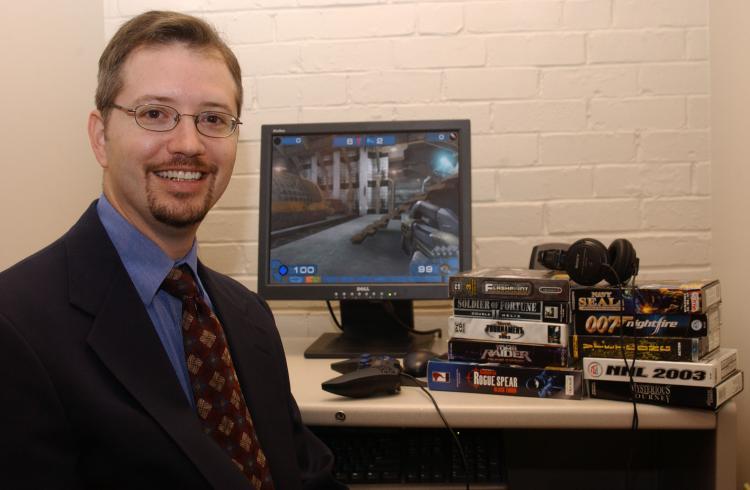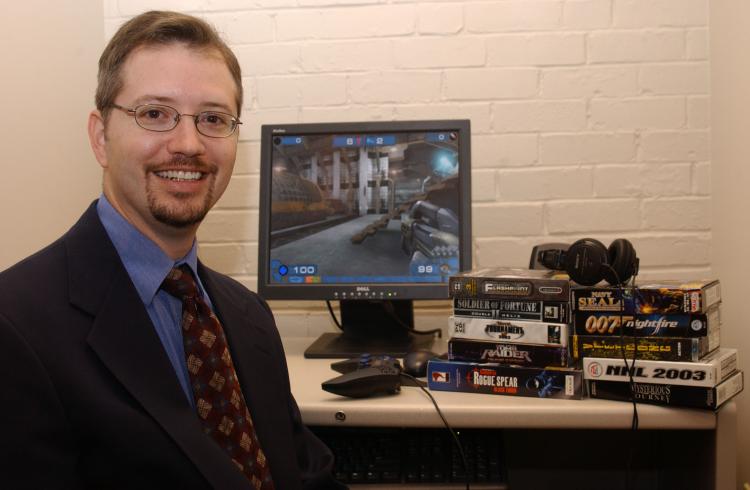NEW YORK—Close to 10 percent of kids who play video games exhibit signs of pathological addiction, according to a new national study released Monday.
The study, “Pathological video game use among youth 8 to 18: A national study,” was conducted by Dr. Douglas Gentile, assistant professor of psychology at Iowa State University and the director of research for the National Institute on Media and the Family. Gentile’s report on video gaming is the first of its kind conducted on a national level.
According to Gentile, when he first heard parents saying their kids were addicted to video games he found it hard to believe.
“To be an addiction means more than ‘you do it a lot.’ It has to mean you’re damaging functioning in multiple areas of your life,” Gentile said in a phone interview. “I thought at first, ’that’s not what’s happening, so I’m going to go and measure it and show that that’s not what’s happening,'”
The results were the exact opposite of his expectations.
In a survey of 1,178 American kids between the ages of 8 and 18, he found that 88 percent of them play video games and 8.5 percent exhibit at least 6 of 11 addictive characteristics that are “causing significant problems in their lives based on how they play [video games,]” Gentile said.
The 8.5 percent of pathological gamers play an average of 24 hours per week and reported having more trouble paying attention in school, received poorer grades in school, had more health problems, were more likely to feel “addicted,” and even stole to support their habit, according to the report.
Since there’s not yet a specific standard to determine video game addiction, Gentile went by the standards used to identify gambling addiction.
He said “the study is really just the tip of the iceberg” and there are several similar studies soon to be underway. The results may soon make the addictive nature of video games a larger focus.
“If you think about alcoholism 40 years ago, back in the 50s and 60s there were studies like this one coming out saying that some people seem to have a real problem with this that looks like an addiction and the culture didn’t believe that. The culture treated it as a moral problem,” Gentile said.
“So now we all accept alcoholism as a disease. I think we’re at the same place with video games as we were 40 years ago with alcohol addiction,” he said.
There are still questions that have yet to be answered, yet according to Gentile “what we don’t know from this study is probably more important than what we do know.”
Other studies soon to be underway will focus on subjects including which kids are most susceptible to video game addiction, how long the addiction lasts, and what kind of help they may need to break from the addiction. Gentile added that in several Asian countries video game addiction is already a well recognized problem.
South Korea has over 100 state-sponsored clinics that treat video game addiction, he said.
It has also yet to be determined whether the addiction carries into adulthood, which it may given that adults make up the largest and fastest growing segment of the video gaming market.
Household Discipline
According to the report, only close to half of the kids said they have rules at home that regulate how long they can play video games for. For some families, restricting the amount of time played has helped curb video game addiction in kids.
“If we didn’t regulate it he'd be on it 24 hours a day. He wouldn’t even eat,” said mother Jeannette Davidson, 34, of San Diego, Calif.
Davidson’s 17-year-old son, William, has been playing video games from a young age. The family imposed restrictions on how long he plays the games and when he plays due to signs of addiction.
“If he’s allowed he'll be on it for as long as he can,” Davidson said. “It’s very addicting I think.”
William is allowed to play for set amounts of time as long as he has good grades in school and completes his chores. He also isn’t allowed to play until he finishes his homework. When William was in elementary school he would play sick so he could go home and play, his mother said.
In order to stop him from playing when she wasn’t home, “I would take the controllers with me when I left the house,” she said.
After they set tighter restrictions on the games, they saw huge changes.
“Now it affects him in a good way. If he doesn’t get good grades he doesn’t play,” she said.







